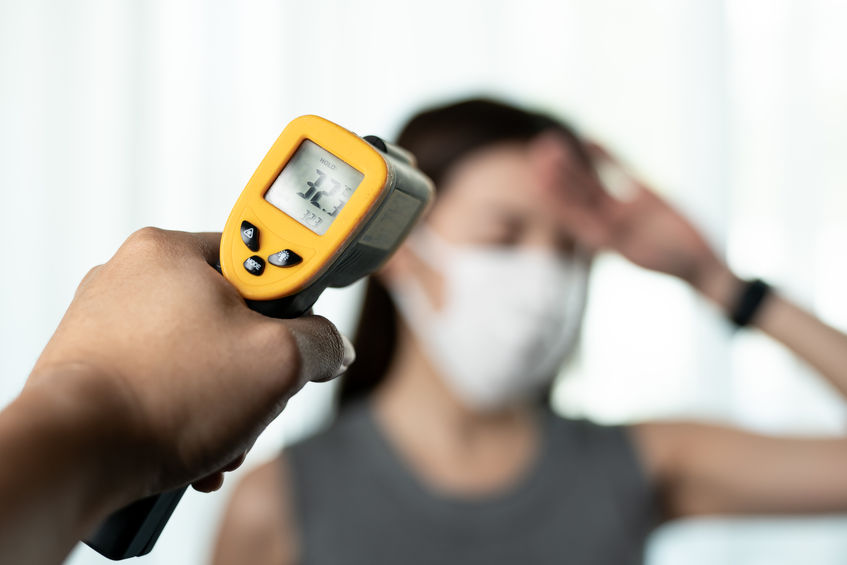There seem to be three main key types of claims that are emerging in coronavirus-related employment lawsuits: wrongful termination, discrimination, and failure to provide notice of layoffs (WARN Act violations).
• WARN Act: The federal WARN Act requires, in certain circumstances, that employers with 100 or more employees provide at least 60 days’ notice before conducting a mass layoff or closing a plant. Less notice may lead to claims for backpay and penalties. Additionally, multiple states have enacted similar “mini-WARN” acts. Several WARN class actions already have been filed.
• Wrongful termination: As employers facing economic uncertainty have let workers go, their employees have responded with wrongful termination lawsuits. Such lawsuits continue to be filed as the pandemic drags on.
• Discrimination: Terminated employees have brought claims under federal and state anti-discrimination laws, challenging the purported reason they were selected for an adverse employment action.

To determine how much risk Arizona business leaders are facing in regards to coronavirus lawsuits in the wake of the COVID-19 pandemic, Az Business talked with Stephanie Quincy, chair of Quarles & Brady’s Labor & Employment Group in Phoenix and one of Az Business magazine’s Most Influential Women in Arizona Business for 2014.
Az Business: How much will the unpredictability of the pandemic protect an employer from coronavirus lawsuits or employment-related lawsuits?
Stephanie Quincy: Since mid-March, when the pandemic became a string of state and local closing orders, employers have scrambled to comply with guidelines that have changed — and to a certain extent — are still changing. Even the CDC flip-flopped on the need to wear masks. By the time a lawsuit makes it to a judge or jury for determination, the uncertainty and impact may be distant memories. In addition, hindsight is 20/20 and no one is certain what will happen with the spread of the virus. Judges and juries hold employers to high standards. A wise business is documenting all of its efforts to keep its employees safe during this time, including attempts to obtain personal protective equipment (PPE), cleaning and sanitization programs, and adhering to employment laws, which include safety laws, the Americans with Disabilities Act, and other laws. A wise business is also taking all reasonable precautions to keep its employees safe (PPE required, temperature testing, cleaning, etc.). This type of evidence will help demonstrate that an employer was doing its best in very challenging times.
AB: Many employers were forced to make quick decisions to avoid financial ruin in the face of the pandemic. Is there anything an employer can do after the fact to reduce the risk of coronavirus lawsuits that may arise from those quick decisions?
SQ: Once an employment decision has been implemented, it is difficult to fix, but not impossible. For example, if an employer denied an employee paid leave under the CARES Act, it is easy to simply pay the employee for leave retroactively. If an employee was let go and the employer is concerned that decision was legally risky, it is best to have such discussions with counsel. Employers can offer employees reinstatement with back pay, which fixes much of the harm. It really depends on the mistake that was made whether a fix will make things better or just open a new can of worms. In some situations, an employer may feel bad about a decision, but the decision was completely legal. If an employer is now looking at permanent layoffs or closures, talk with an attorney about whether WARN laws apply before making any notifications.
AB: Which types of wrongful termination allegations — i.e. terminated after requesting to work from home, terminated for complaining about a lack of gloves or masks, terminated because they were a “high risk” employee, etc. — will be the most difficult for employers to defend?
SQ: Every case turns on its individual facts. That being said, terminating an employee because they have a health condition or are over 60 – particularly if that was the reason stated to the employee – absolutely violates the law (Americans with Disabilities Act or Age Discrimination in Employment Act). That would be very problematic to defend.
There have already been lawsuits filed (including against healthcare providers) where employees allege that they were fired when they complained about the lack of PPE. There are possibly some defenses to such a claim, but only where the employee’s complaint was made in a manner that was patently unreasonable. For example, if an employee slapped her supervisor when the facility ran out of gloves, that termination would be defensible. But bringing forward concerns about safety are protected under the law, and an employee has fair breadth in how they do this.
For employees who are let go for requesting to work from home, there are more defenses for an employer, particularly if an employee is needed at the job such as an airline or restaurant employee where the work cannot be done at home. There is no protected category for “working from home,” though if the employee could be more adversely impacted by COVID-19 (such as having heart condition, asthma, or diabetes), they are requesting an accommodation under the Americans with Disabilities Act, and the employer must provide accommodations that are reasonable and don’t create an undue burden.
AB: Which wrongful termination allegations will be the easiest for employers to defend?
SQ: Employees asking to remain on “furlough” so they can continue to received heightened unemployment benefits is pretty easy to defend. That is not a “wrongful termination” claim when the employer ends their employment permanently. Employees asking to work from home or remain on a leave because they are afraid of contracting COVID-19 — without more, such as a disability — also don’t have a claim. These are situations that being faced by employers who are returning their workers to work. It is a difficult balance, but legally, employees who don’t return for these reasons have no claim.
AB: What is the most important thing employers should do to prepare for the potential of coronavirus lawsuits?
SQ: Employers should be listening and talking to their employees. There are widely divergent feelings about safety related to the pandemic. Rather than just emailing or issuing memos, employers should reach out to employees to understand their concerns. Most employers want to do the right thing. It is important to understand why an employee may be hesitant to return to work (for example a cancer survivor with a compromised immune system). Simply sending out a note saying everyone must return by a certain date does not work. Employees often have good ideas about safety. Listening is important.
AB: What should employers do if an employee does test positive for COVID-19 after everyone returns to work?
SQ: As Arizona continues to reopen, businesses will likely have an employee test positive for COVID-19. How an employer should respond depends on many factors, including how recently the employee has been in the workplace, the nature of the work, and whether guests or employees are following social distancing guidelines. Think through how you would handle such a situation now, including what you would say to guests and other employees.




